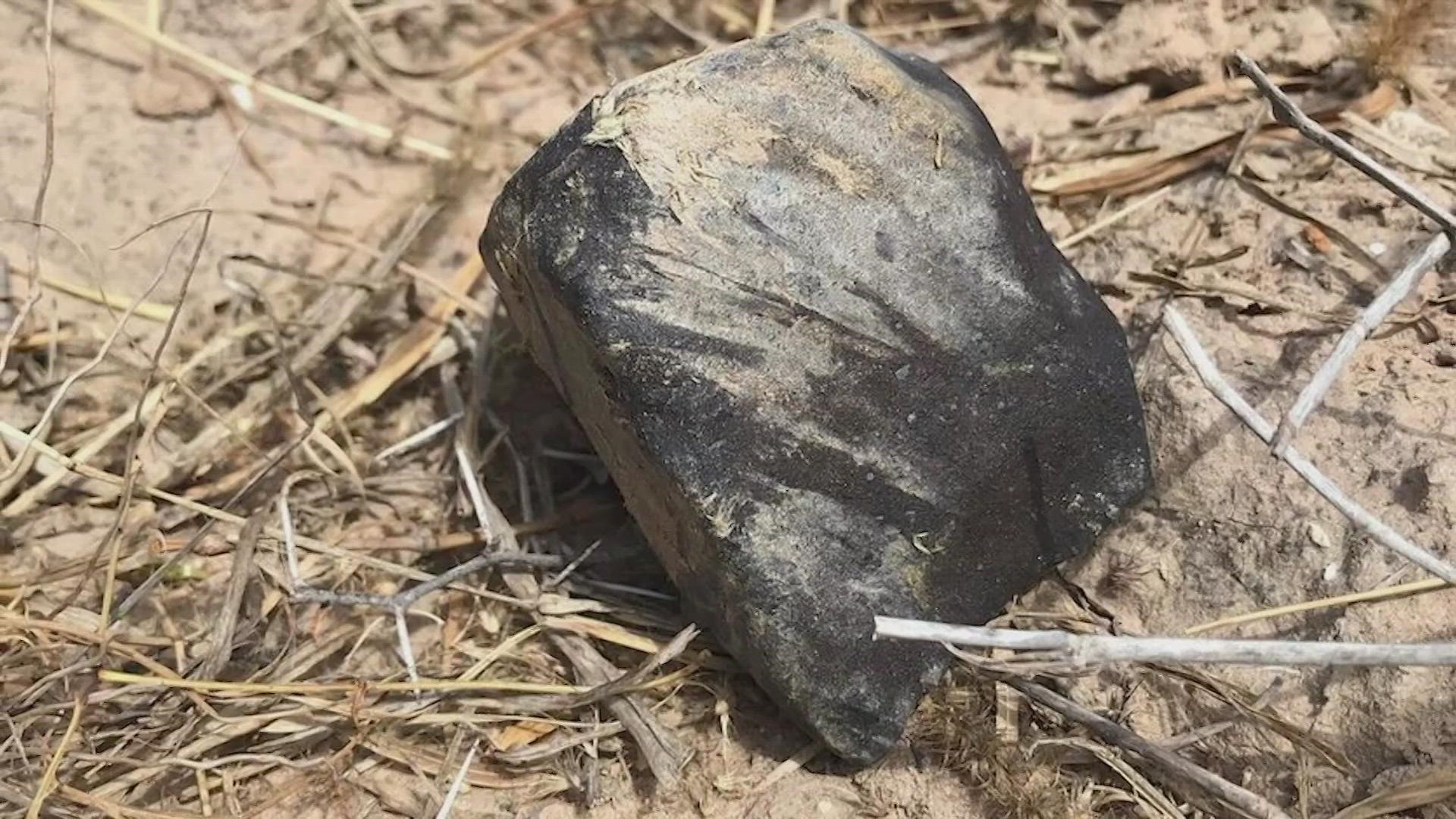SAN ANTONIO — Fragments of the meteor seen in the sky over south Texas last Wednesday have now been found after an exhausting search.
First let's make something very clear. A meteor is a fireball in the sky that never reaches the ground. A meteorite is when a meteor or parts of a meteor make it all the way to the ground. Now that fragments have been found from last week's meteor, it is now called, a meteorite.
Mike Hankey, the Operations Manager for the American Meteor Society told us, "It made a very significant boom and that really correlates to the mass of the object."
Three days after the sonic boom and the shaking of the ground the first fragment of the meteorite was found and recovered not far from the southern tip of Texas near El Sauz, Texas on private property by planetary science researcher Robert Ward of Prescott Arizona. So how big was it? And what's it made of? Hankey added, "It's called an ordinary chondrite. And they call it ordinary just because 90%, roughly 85% of all meteorites are this ordinary conjugate and it's a stone. And this one is pretty close to the size that was first found in Texas."
The American Meteor Society says three meteorite falls were recovered in three consecutive days. First on February 13th when Asteroid 2023 CX1 disintegrated as a fireball over the coast of Normandy. On the 14th dozens of reports of a fireball over Southern Italy were received by the AMS. It was aptly named the "Valentines Day" meteorite. And finally the meteor in south Texas that NASA says was a 1,000 pound meteor, traveling at 27,000 mph!
February 15th seems to be a popular date for meteors. In 2009 the town of West, Texas was rocked by the sound of a meteorite. Many of us have seen videos of the house-sized Chelyabinsk meteor in Russia blowing up in the air, and now the one in El Sauz. Could they be related? Hankey told us, "Space is big. There's tons of stuff in space, tons of asteroids, tons of meteors. So you can't definitively say these things are all related necessarily.."
Hankey also told us the fragments are not radioactive and belong to the property owner if they are found on private property or the person searching for them, as long as the property owner gave them permission to do so.

